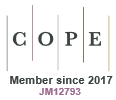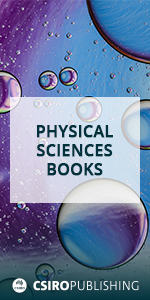Continuous Publication
This journal is published under a continuous publication model. In the continuous publication model, once an article is ready for publication, it is immediately published online with final citation details; no longer needing to wait for inclusion in an issue for the final citation details.
- provides certainty on the authoritative version of record for immediate citation;
- streamlines production processes reducing time to publication;
- supports our strategy of moving towards Open Science, facilitating access to content in a digital world where readers come directly to their article of interest, rather than browsing content;
- indexing occurs upon publication of each article rather than at issue compilation, making the author's work discoverable sooner.
In a continuous publication model, a permanent and unique article identifier (e-locator) is used instead of page numbers to cite an article. The e-locator is the last 7 characters of the DOI, unique to each article. Specific information on how to cite an article can be found at the article level.
In short, nothing, aside from the benefits listed above. Nothing will change in the Author Instructions and clear information on how to cite papers is available to authors and readers at the article level. The ‘Latest’ tab on the journal website displays the latest published content. Content will continue to be bundled into the same number of “issues” as 2023 and these will be promoted to readers via our usual methods, including social media and email alerts.
Articles for special issues will be published into an “issue-in-progress”, and clearly labelled with special issue information. In this way, special issue papers can continue to be published as soon as they are ready. These papers will be assembled into discrete virtual collections, each with a dedicated web page. Each time a special issue paper is published, it will be added to the growing special collection as described above.



